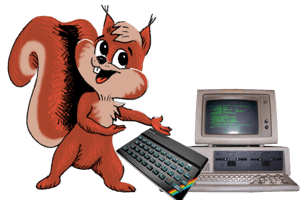Formal language theory is defined to be the study of sets of words over finite alphabets. In formal language theory a word in a language can be accepted by a device (automaton) or generated by a grammar. The four languages of the Chomsky hierarchy (regular, context free, context sensitive and recursively enumerable languages) are typically studied.
More information
More information
Subcategories 4
Related categories 1
Sites 4
An introductory approach to the topic using many examples.
A set of slides on grammars and language generation, with examples including a grammar for an abbreviated C language.
A brief discussion of context sensitive languages, recursively enumerable languages and languages with no grammars. Examples show these are not equivalent.
Lecture notes providing definitions, examples, theorems and problems. Course taught at University of Pennsylvania, Department of Linguistics.
Lecture notes providing definitions, examples, theorems and problems. Course taught at University of Pennsylvania, Department of Linguistics.
An introductory approach to the topic using many examples.
A set of slides on grammars and language generation, with examples including a grammar for an abbreviated C language.
A brief discussion of context sensitive languages, recursively enumerable languages and languages with no grammars. Examples show these are not equivalent.
